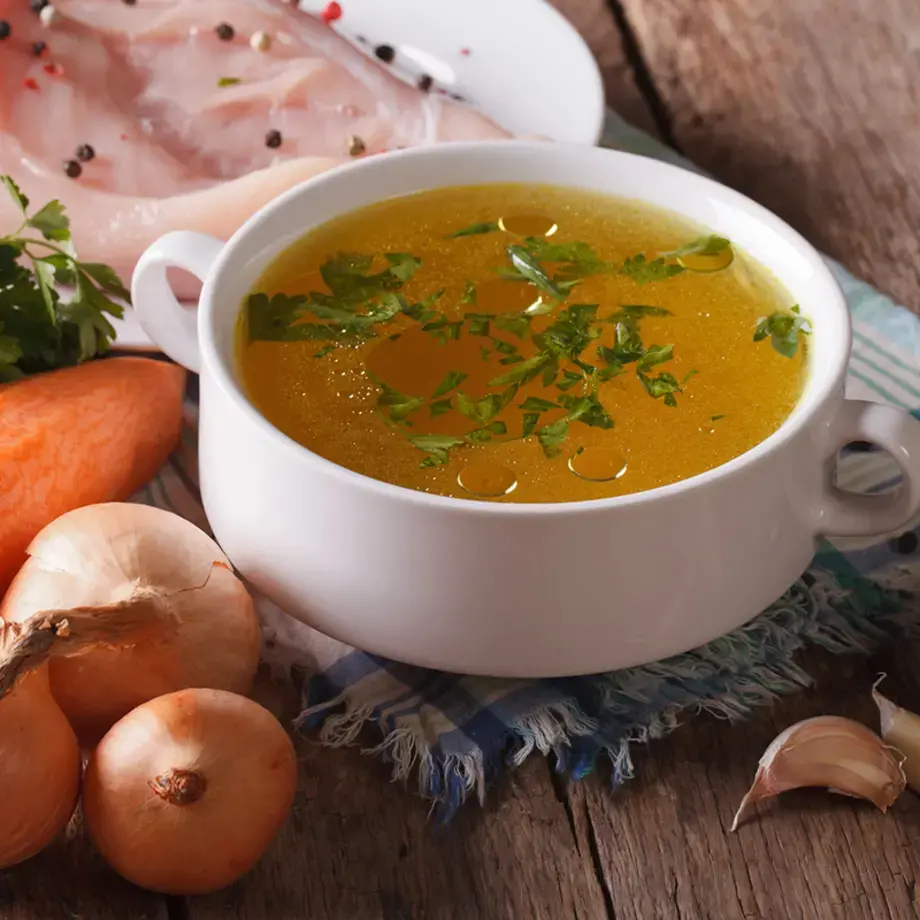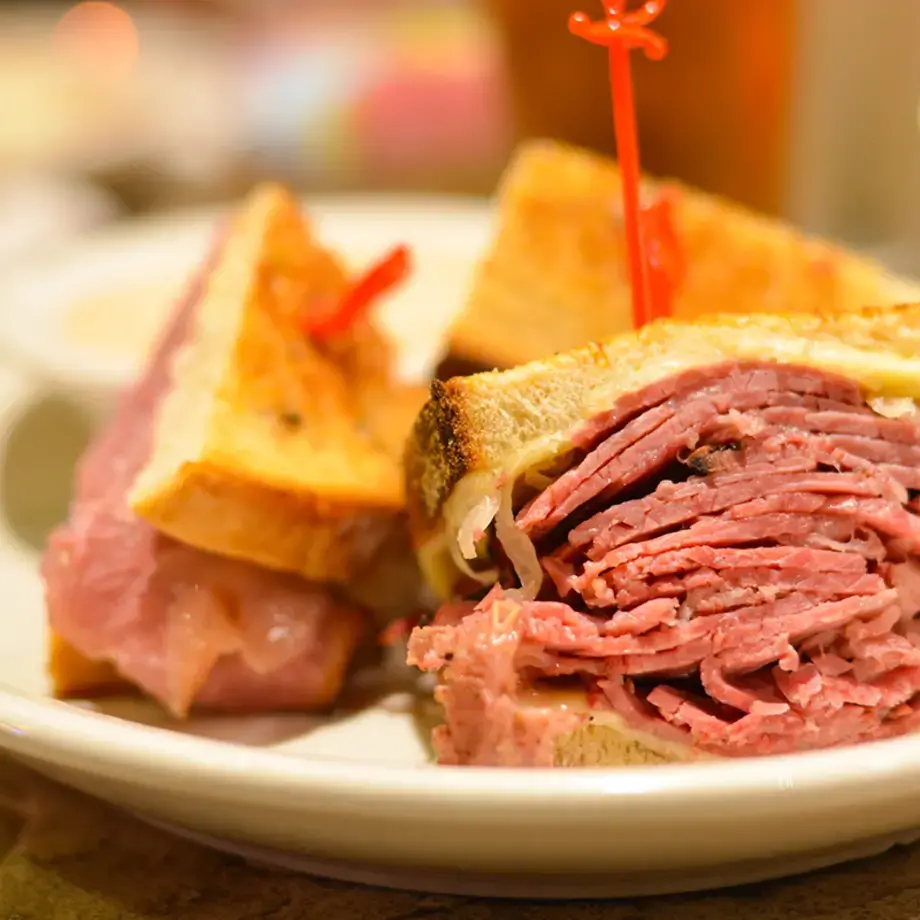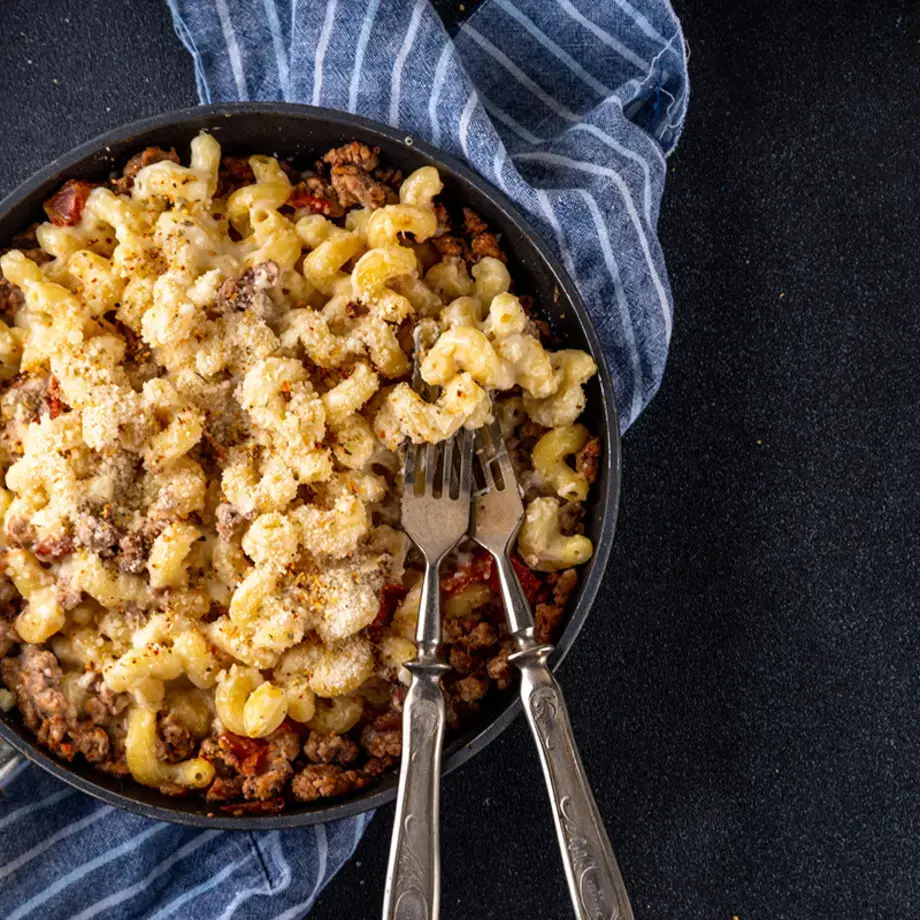Despite its name, corned beef has nothing to do with corn. Corned beef gets its name from the old English word ‘corn’ – corned beef was first coined by the British in the 17th century. The term 'corn' was used to identify a small piece of hard thing the size of a single grain, and all types of grains were also called 'corn', so when beef was cured, it was covered with large chunks of salt similar to oats or barley, so it was called 'corned'.
Corned beef is typically made from beef brisket – a relatively inexpensive cut of beef – cured in salt brine, with some pickling spices: bay leaf, peppercorns, mustard seed, juniper berries, coriander seeds, and whole cloves. Corned beef gets its characteristic sweet and tart taste from the brine. The meat will sit in the brine for a minimum of five days and up to 10 days – an essential step required before cooking.
Brisket is a boneless cut of meat made up of two muscles that support the animal's weight. The meat of brisket comes from an area - the lower chest of a cow – that gets a lot of activity, which makes the beef pretty tough. For this reason, brisket beef is usually cooked slowly.
Besides the brining process, corned beef requires braising, which means the meat will be cooked with some liquid over low heat for several hours. The brining process and the slow braising of the tough brisket result in very tender and flavourful meat.
As a consequence of the curing process, corned beef tastes different to the beef you eat when you eat a roast or a steak. When corned beef is cooked, it has a soft, tender texture and a pinkish hue throughout, with a balanced taste of salt, spice, sour, and meaty. The briny flavours are assertive but not overpowering, especially when balanced with earthy wedges of boiled cabbage and mildly flavoured potatoes.
People generally avoid corned beef because of the claims that it is unhealthy. Corned beef gets its vibrant pink colour due to sodium nitrite, a chemical compound that also adds flavour and helps inhibit bacterial growth. There is some controversy over sodium nitrite in curing meats, as the frequent consumption of cured meats is linked to an increased risk of certain types of cancer. Corned beef's high sodium content could also easily exceed the recommended regular intake, which can be a severe health risk for blood pressure values.
Corned beef nutrition facts











